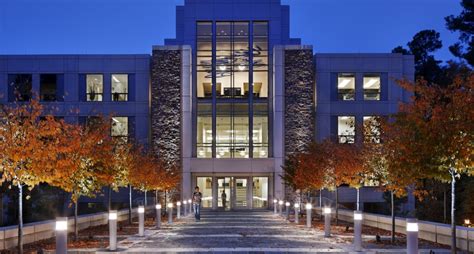In today’s rapidly evolving technological landscape, the demand for skilled IT professionals has skyrocketed. With lucrative salaries and ample job opportunities, a degree in IT is a smart investment for the future. If you’re aspiring to excel in the IT industry, choosing the right college is crucial. Here’s a comprehensive guide to the top IT colleges in the US, empowering you to make an informed decision.

Massachusetts Institute of Technology (MIT)
MIT stands as an undisputed leader in IT education, consistently ranking among the best universities globally. With a stellar reputation for research and innovation, MIT’s rigorous curriculum prepares students for cutting-edge roles in software engineering, cybersecurity, data science, and other IT fields.
Key Features:
– World-renowned faculty at the forefront of IT research
– State-of-the-art facilities and resources
– Strong connections to industry leaders for internships and career opportunities
– Average starting salary for graduates: $117,000
Stanford University
Stanford University’s School of Engineering is renowned for its focus on interdisciplinary research and collaboration. The university offers a wide range of IT programs, including computer science, artificial intelligence, and human-computer interaction. Stanford graduates are highly sought after by top tech companies and research institutions.
Key Features:
– Entrepreneurial environment fostering innovation and start-up creation
– World-class faculty with industry experience
– Access to the Stanford Research Institute (SRI International)
– Average starting salary for graduates: $130,000
Carnegie Mellon University (CMU)
CMU’s School of Computer Science is widely recognized for its strength in foundational research and real-world applications. The university offers a comprehensive curriculum in computer science, software engineering, information systems, and human-computer interaction. CMU graduates are known for their exceptional problem-solving and technical skills.
Key Features:
– Faculty with deep industry connections
– Partnerships with leading technology companies for research and internships
– Strong emphasis on entrepreneurship and innovation
– Average starting salary for graduates: $115,000
University of California, Berkeley (UC Berkeley)
UC Berkeley’s College of Engineering is a powerhouse in IT education. The university’s EECS (Electrical Engineering and Computer Sciences) department is consistently ranked among the best in the nation. UC Berkeley offers cutting-edge programs in computer science, electrical engineering, and data engineering.
Key Features:
– Renowned faculty driving cutting-edge research
– World-class facilities and resources
– Strong emphasis on experiential learning and industry partnerships
– Average starting salary for graduates: $120,000
Cornell University
Cornell University’s College of Engineering is a hub of innovation and research. The university offers a diverse range of IT programs, including computer science, information science, and operations research. Cornell graduates are known for their strong technical skills and analytical abilities.
Key Features:
– State-of-the-art research labs and facilities
– Faculty with expertise in various IT domains
– Numerous opportunities for internships and research collaborations
– Average starting salary for graduates: $105,000
Strategies for Choosing the Best IT College
- Research Reputation and Rankings: Explore university rankings, industry surveys, and employer feedback to assess the reputation and credibility of the IT program.
- Evaluate Curriculum: Carefully examine the program’s curriculum, focusing on the core courses, electives, and research opportunities aligns with your career goals.
- Consider Faculty and Research: Look for colleges with renowned faculty who are actively engaged in cutting-edge research. This ensures access to the latest knowledge and industry insights.
- Assess Industry Connections: Universities with strong relationships with technology companies provide students with valuable internships, networking opportunities, and job prospects.
- Explore Facilities and Resources: State-of-the-art facilities, high-performance computing labs, and access to specialized software and equipment are essential for a comprehensive IT education.
Comparison of Pros and Cons
| College | Pros | Cons |
|---|---|---|
| MIT | World-renowned faculty, cutting-edge research, strong industry connections | High tuition fees, intense workload |
| Stanford University | Interdisciplinary approach, entrepreneurial culture, access to SRI International | Smaller class size, competitive admissions |
| Carnegie Mellon University | Strong foundational research, emphasis on innovation, internship opportunities | Less emphasis on humanities and social sciences |
| University of California, Berkeley | EECS department ranked among the best, experiential learning, alumni network | Large class size, competitive grading |
| Cornell University | Diverse IT programs, state-of-the-art facilities, research labs | Lower brand recognition than other Ivy League schools |
Frequently Asked Questions
- What are the highest-paying IT jobs? Software engineers, data scientists, and cybersecurity analysts are among the highest-paid IT professionals.
- How can I make my IT application stand out? Highlight your technical skills, passion for IT, and research experience. Consider participating in relevant competitions and open-source projects.
- Can I get a job in IT without a college degree? While a college degree is highly recommended, there are self-study and certification paths to enter the IT field. However, career growth and earning potential may be limited.
- What is the future of IT? Cloud computing, artificial intelligence, and blockchain technology are driving innovation and creating new job opportunities in IT.
- Is it difficult to get into a top IT college? Admissions to top IT colleges are highly competitive and require excellent academic performance, extracurricular activities, and strong letters of recommendation.
- What internships are available for IT students? Internship opportunities range from software development to data analytics to cybersecurity, depending on your career interests.
In conclusion, choosing the right IT college is crucial for a successful career in the tech industry. By carefully considering the factors discussed in this guide, you can identify the colleges that best align with your aspirations and empower yourself with the knowledge and skills to excel in the dynamic field of IT.
